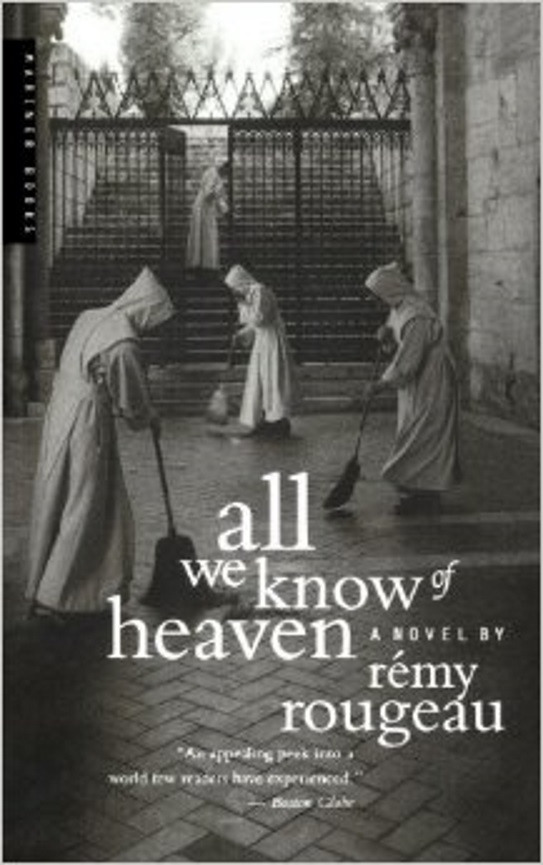The novel by Remy Rougeau ‘All We Know of Heaven’ swept softly upon a utilitarian path of perfection with the ending of a chapter in which the main character, Antoine, concludes his solemn vows. After six years as a Cistercian monk, a vow of permanency is performed. He chooses his mother’s birthday as the date of the ceremony. She never accepted his religious choice. Grandchildren her imagined perfection, emotionally, she suffered tremendous angst over her only child giving himself to the cloistered life. During celebrations, Antoine’s mother’s mother, his grandmother takes center stage,weeping in gratitude, endlessly praising and hugging Antoine, stating how she suffered since none of her numerous sons entered the priesthood. His mother makes a grand speech, expressing her displeasure within her acknowledgment she was proud of her son. Within her overwhelming sorrow, she identifies joy. Aunts and uncles, cousins, many attend the ceremony. Antoine’s quiet farming father loses himself during the boisterous gathering after formalities. Antoine finds him in an alcove under a stairway with one of his brothers, the monk in charge of the cattle. The two men are talking of cows as if they have known each other all of their life. Antoine realizes his father would be content within the monastery walls, and not as a slight to his mother. Everything comes together to allow God to grace him with the understanding his discernment is divinely pleasing.
He knew he was not responsible for the day; how could he accept credit for having come from a good French-Canadian family? And he knew that it was not for his intelligence or virtue that the Cistercian monks had taken him in. Even after he swallowed several times, his tears stubbornly flowed.
The emotion Antoine felt was broader than gratitude. He was appreciative, yes, but he also wanted to be better than he was: more virtuous, more sympathetic, more responsible to the world. He had an idea about what holiness meant–something the size and shape of Brother Bernard–and he struggled toward it. He wanted to make that shape his own somehow. He wanted to wish that shape upon the world.


